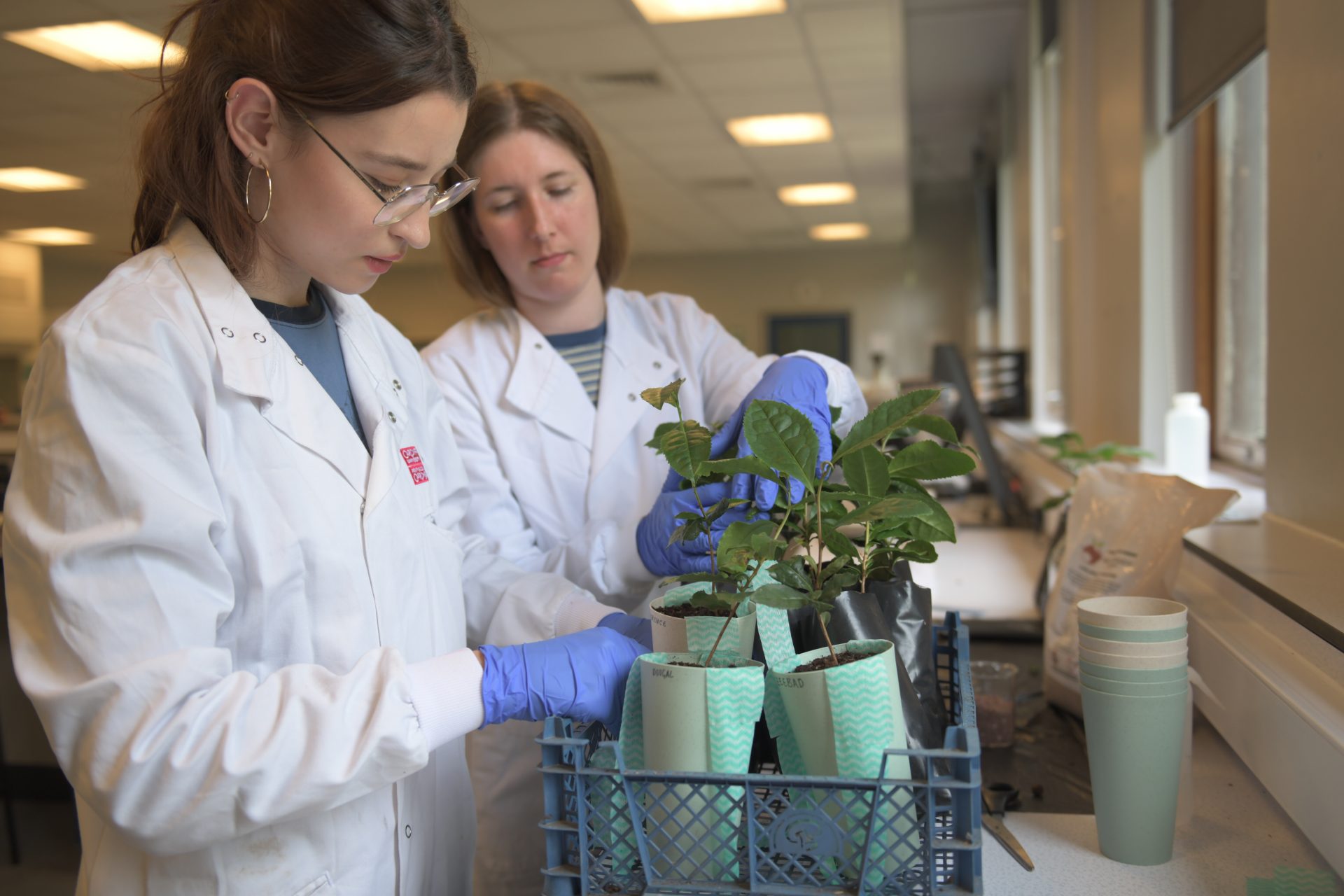
Is it possible to grow tea in space? We’re working on it! A team of Kent researchers – led by Professor Nigel Mason – are looking into growing food in space for people who are based on space stations and the Moon in the future, and are starting with securing the perfect cuppa.
Working with partners from Dartmoor Estate Tea – a pioneering British tea grower dedicated to growing the market – have planted saplings into specially prepared soils that mimic those found on the surface of the Moon and Mars.
They will monitor how the plants develop over the course of 30 days – comparing their performance with a control sample from Devon -with temperature, humidity and lighting controlled to mimic conditions in space. They will also test to see if any harmful substances make their way into the leaves. The results are expected in September.
The study is the first time Kent scientists have worked in the growing field of “space agriculture” – which looks at how humans might one day grow food, not just in orbit, but on the surfaces of other worlds.
Professor Nigel Mason, a specialist in molecular physics said: ‘We’re moving into a new age of space, where we no longer just want to explore. As soon as you think about settling in space and building bases on the Moon or Mars, one of the first things you want to know is, ‘what will people eat?’. While we’re starting with tea this work will help scientists better understand what else we can grow in space. However, it does also feel fitting to looking at how the explorers of the future will be able to enjoy a cup of tea – the ultimate comfort for those looking to set up a new home!’
Final year Physics student Florence Grant who is working on the project said: ‘I’m really excited to see whether the tea plants thrive in the soils we’re using in the experiment. As a physics student at the university, it’s fantastic to collaborate with scientists in other disciplines to make such a unique project possible.’
Research student Anna-Maria Wirth said: ‘Tea is a huge part of British culture and cultures around the world, so it’s really cool that that’s what we’re testing. This is just the beginning though, and I’m excited to see how our work in space agriculture will continue to grow – and support future space missions. It’s exciting to be at the forefront of such a novel field and to be part of shaping the future of space research as a woman in STEM.’
The experiments may also have implications closer to home. While the main aim of the project is to see whether we could grow things on the Moon, a lot of the basic work is also about how crops and plants survive harsh environments and poor soils. Poor soils are a big problem with climate change, and over-farming and this work could help scientists better understand how to transform sterile, lifeless soils into viable growing ones.